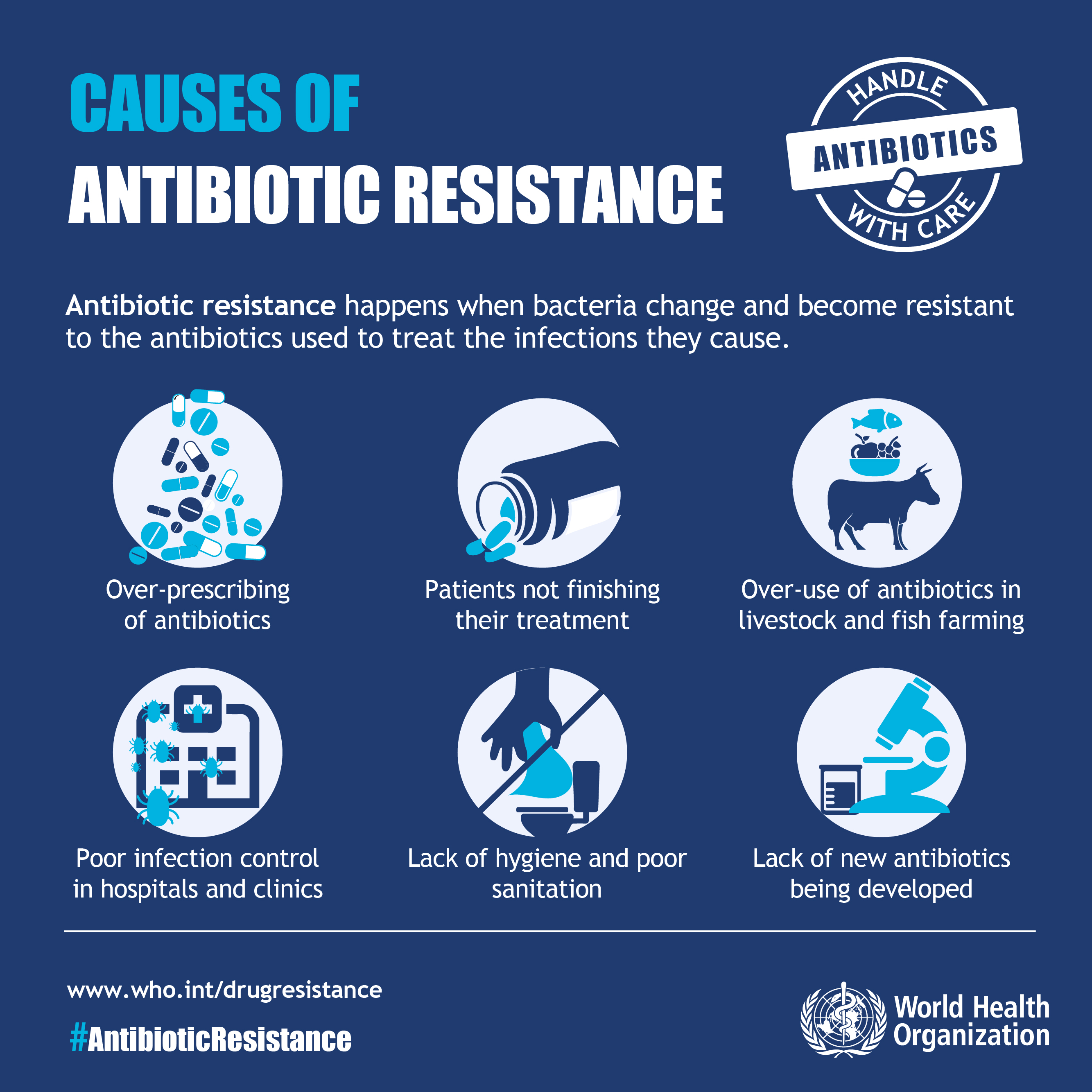World Health Organisation (WHO) released core package interventions on Antimicrobial Resistance (AMR)
Interventions guide country in developing, implementing and monitoring national action plans on AMR.
- It promotes people-centred approach {shifting from solely biological phenomenon (drug resistance)}.
These interventions are based on four pillars and two foundational steps.
Four pillars are: Prevention of infections, Access to essential health services, Timely and accurate diagnosis and appropriate and quality-assured treatment.

Foundational steps:
♦ Effective governance, awareness and education.
♦ Strategic information through surveillance and research.
AMR occurs when microbes (bacteria, fungi, parasites and viruses) evolve so that antimicrobial drugs against them are no longer effective.
- Due to resistance, infections spread and become harder to treat.
- Microorganisms that develop antimicrobial resistance are referred to as “superbugs”.
Challenges in Controlling AMR:
- System challenges: Limited labratory capacity, Weak regulation of over-the-counter (OTC) medicines etc.
- People’s challenges: Inappropriate self-medication, high out of pocket expenditure etc.
Also in News
Key initiatives (India and WHO)
- National action plan (2017) on containment of AMR focusing on One Health approach.
- National AMR surveillance network of state medical college labs (NARS-Net) to generate quality data on AMR.
- Global Action Plan on AMR (World Health Assembly, 2015).
